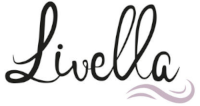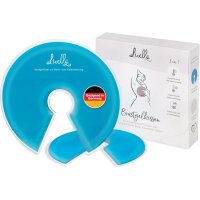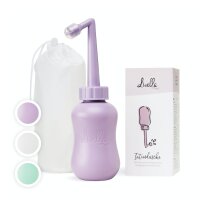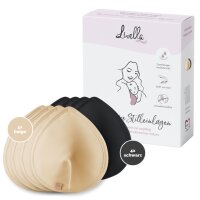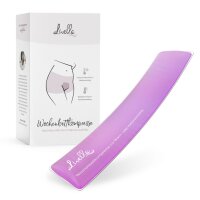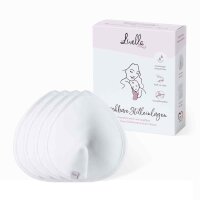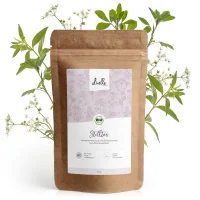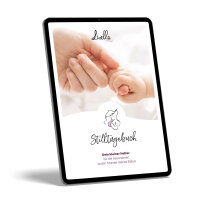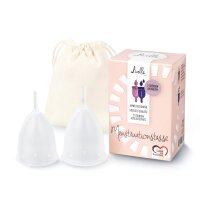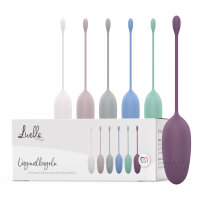Of all cancers in women, breast cancer is by far the most common. Unfortunately, breast cancer not only affects older women, but also women of childbearing age. It’s therefore not uncommon for women to be afraid of developing breast cancer during pregnancy or breastfeeding.
New mothers who are diagnosed with breast cancer during pregnancy or shortly after giving birth are often faced with many unanswered questions. Are breastfeeding and breast cancer compatible? Can breast cancer affect milk supply? Does radiation pass through breast milk? And what about breastfeeding after breast cancer treatment?
Read on as we answer all your questions about breast cancer and breastfeeding, including the implications of a breast cancer diagnosis before and after birth and the chances of successful breastfeeding after treatment.
Table of contents
How does breast cancer affect breastfeeding?
Breastfeeding after breast cancer: challenges and tips
Breast cancer during breastfeeding: diagnosis, treatment and breastfeeding relationship
Does breastfeeding reduce the risk of breast cancer?
Breastfeeding and breast cancer: frequently asked questions
How does breast cancer affect breastfeeding?
Many new mothers wonder: Can breast cancer affect milk supply? Breast cancer and its different treatment methods are, in fact, often associated with reduced milk production and shorter breastfeeding duration. However, the chances of successful breastfeeding despite breast cancer are better with some treatments than with others.
There are various reasons why breast cancer treatment can lead to low milk supply. They include the removal of breast tissue during surgery, permanent damage to the mammary gland tissue caused by radiotherapy and potential damage to the nerves that are responsible for triggering the mother’s let-down reflex.
When the diagnosis is made also plays an important role, as does the moment in which treatment is started. If breast cancer is diagnosed during pregnancy or in the middle of breastfeeding, the treatment naturally has an impact on the breastfeeding relationship between mother and child.
Breast cancer must be treated immediately. Because of the additional strain the cancer treatment puts on the mother and the incompatibility of breast cancer medication with breastfeeding, it’s usually necessary to take a break from breastfeeding until treatment is over.
In short, all types of breast cancer treatment can adversely affect milk production and breastfeeding. However, this doesn’t mean that breast cancer and breastfeeding are not compatible. In fact, breastfeeding with the non-affected breast is often possible.
Women with a history of breast cancer who wish to breastfeed should seek expert advice on the subject early. Professional support with breastfeeding management is important to ensure the healthy development of the child.
Here are the most important facts about breastfeeding and breast cancer at a glance:
- All treatment methods can lead to low milk supply.
- Breast cancer often reduces the overall breastfeeding duration.
- If the diagnosis is made after birth, it is necessary to take a break from breastfeeding during treatment.
- Professional support is crucial for successful breastfeeding despite breast cancer.
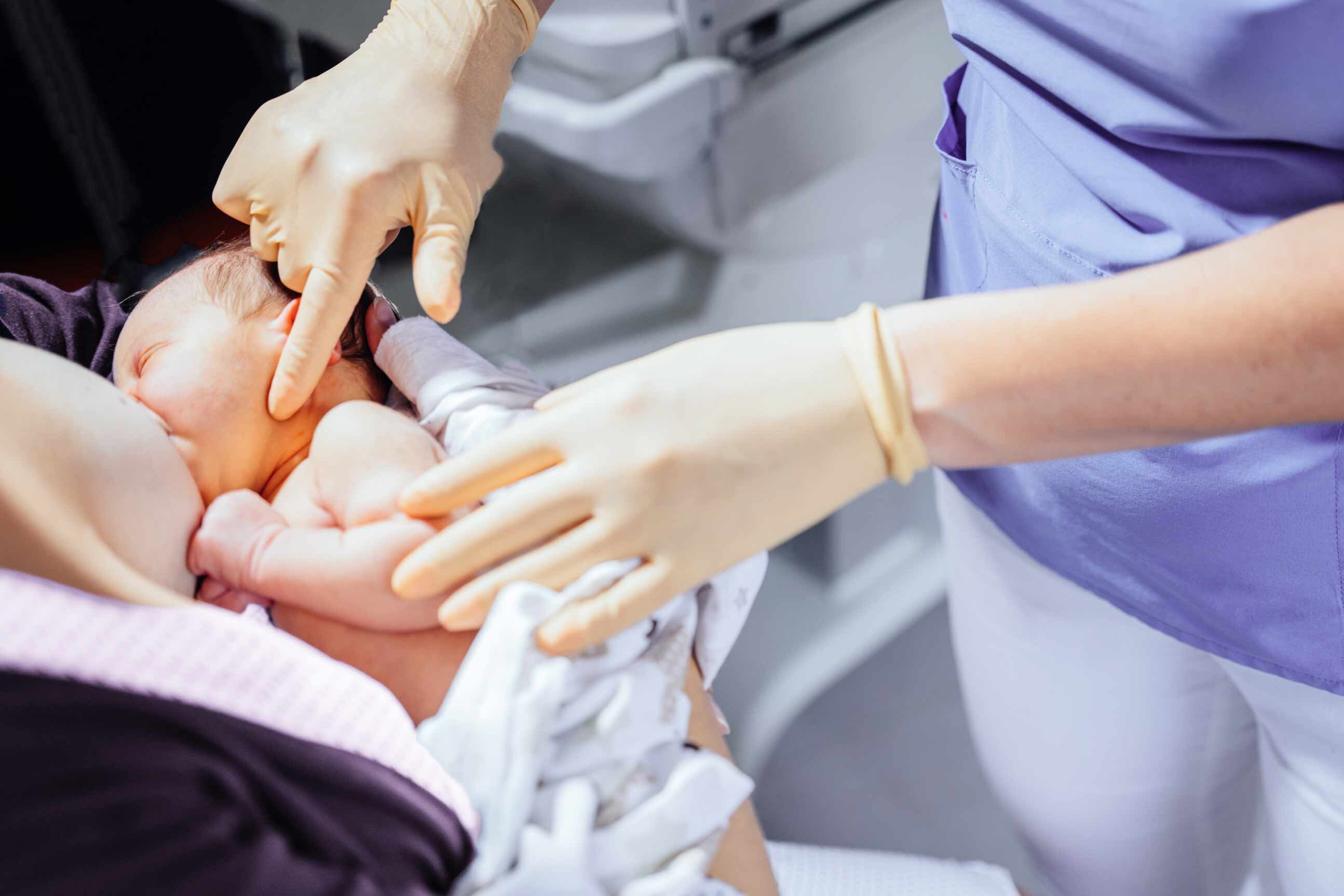
Breastfeeding after breast cancer: challenges and tips
There is good news for women who have undergone breast cancer treatment. In general, breastfeeding after breast cancer is possible. However, new mothers should be prepared for some additional challenges. Regardless of which treatment they received (e. g. breast surgery, radiotherapy or chemotherapy), it is to be expected that the milk supply will be lower compared to other women.
The general consensus is that breastfeeding is safe after the treatment is over. Experts recommend new mothers to wait about four weeks before starting breastfeeding after breast surgery, radiotherapy or chemotherapy.
Mothers whose cancer treatment continues after the birth of their child can express breast milk to get their milk production going and maintain their milk supply until they can start breastfeeding. Breast milk that is expressed during breast cancer treatment must be discarded and cannot be fed to the infant.
Breast milk supply in the affected breast is often too low for breastfeeding. However, the milk supply in the other breast usually remains unaffected (a possible exception being chemotherapy), which means that unilateral breastfeeding after breast cancer is definitely an option. In order to ensure sufficient milk supply in the non-affected breast, it’s important to stimulate the milk production right from the beginning.
Good breastfeeding management, plenty of skin-to-skin contact and additional pumping all help increase the mother’s milk supply. Using galactagogues, on the other hand, is not recommended. That’s because many of the drugs that are used to induce and increase milk production include substances that can promote the development of tumours or even reduce the effectiveness of other drugs used in breast cancer treatment.
Another problem that often arises when women start breastfeeding after breast cancer treatment is the transition from bottle-feeding to breastfeeding. In cases where breastfeeding is delayed due to ongoing breast cancer therapy, getting the baby to accept the breast can be challenging.
Also, bottle-feeding a newborn often results in nipple confusion. This means that the infant adopts a sucking pattern that is adapted to artificial teats, but is not suitable for drinking from the breast. When switching to breastfeeding, this can lead to various problems such as sore nipples or blocked milk ducts.
Here are the most important facts about breastfeeding after breast cancer at a glance:
- Breastfeeding after breast cancer is possible.
- Previous breast cancer treatment often requires unilateral breastfeeding.
- Good breastfeeding management and additional pumping can help increase milk supply in the unaffected breast.
- If the initiation of breastfeeding is delayed for treatment reasons, switching from bottle-feeding to breastfeeding can lead to various breastfeeding problems.
Breast cancer during breastfeeding: diagnosis, treatment and breastfeeding relationship
Breast cancer is often diagnosed late during pregnancy and breastfeeding because the breast tissue undergoes constant changes during this time. Also, breastfeeding issues such as blocked milk cuts or early breast engorgement can lead to lump formation in the breast. With lumps frequently appearing and disappearing, it’s very easy to overlook signs of breast cancer when breastfeeding.
Once discovered, breast cancer should be treated as quickly as possible in order to maximise the chances of recovery. For the new mother, it’s only natural to wonder what the diagnosis means for her, her baby and breastfeeding in general.
Breastfeeding can be continued without restriction throughout the diagnosis. The methods used for diagnosing breast cancer are safe for breastfeeding and there is no scientific evidence that breastfeeding with breast cancer is harmful for the baby.
In rare cases, it might be necessary to put in a breastfeeding break during the procedure. However, the break usually doesn’t last for longer than 24 hours, which makes it easy to bridge the gap by feeding breast milk that has been expressed in the days before the procedure.
While it is safe to continue breastfeeding until the diagnosis is confirmed, this changes as soon as the treatment starts. The drugs which are administered during chemotherapy can pass through the breast milk and harm the baby, which means that breastfeeding during breast cancer treatment is out of the question.
Mothers who want to restart breastfeeding after successful treatment should take measures to maintain their milk supply during chemotherapy by regularly pumping breast milk. Before resuming breastfeeding, however, the mother will have to see her doctor who will carry out a check to ensure that there are no traces of the chemotherapy drugs left in the mother's blood.
Women who are diagnosed with breast cancer after birth and want to resume breastfeeding at a later stage should be prepared for the same problems that also affect women that had their treatment completed before pregnancy. For instance, chemotherapy can adversely affect milk production and there is always a risk of the baby going on a breastfeeding strike after having been bottle-fed.
It is very important that the mother gets all the support she needs and that she knows that her baby is in good hands. Only then can she concentrate fully on her recovery. It is up to her partner, family and friends to provide the necessary support and ensure that the baby is well looked after.
Here are the most important facts about breast cancer during breastfeeding at a glance:
- Breast cancer is often diagnosed late during pregnancy and breastfeeding.
- Breastfeeding with a breast that is affected by breast cancer is not harmful to the baby.
- During chemotherapy, breastfeeding cannot be continued because the drugs can be a threat to the child’s health.
- When breastfeeding is resumed after treatment is over, the baby may refuse to breastfeed.
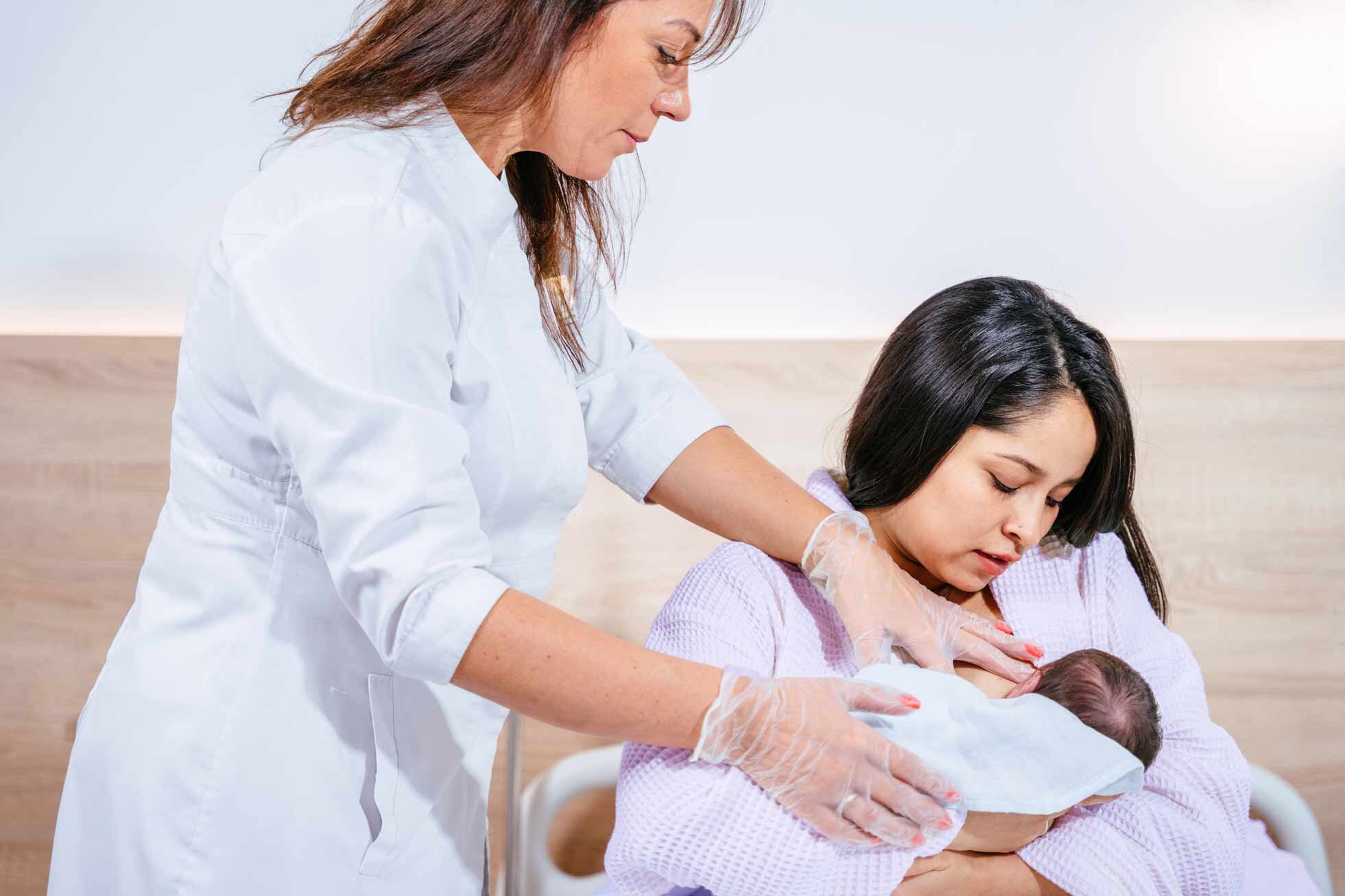
Does breastfeeding reduce the risk of breast cancer?
There is yet another aspect that needs to be considered when talking about breastfeeding and breast cancer. One question that often comes up in this context is whether breastfeeding reduces the risk of breast cancer.
One of the many benefits of breastfeeding is, in fact, that it reduces the mother's risk of developing breast cancer. The longer a woman breastfeeds her child, the lower her risk of getting breast cancer later in life. According to the European Breast Cancer Prevention Code, breastfeeding for 12 months reduces the risk of breast cancer by 4 percent.
Breastfeeding and breast cancer: frequently asked questions
When it comes to breastfeeding and breast cancer, there are many open questions. Here are the answers to the most common questions about breastfeeding with breast cancer or after successful treatment.
Can I breastfeed if I have breast cancer?
Breastfeeding with breast cancer is generally possible. There is no scientific evidence that being breastfed from a breast that is affected by cancer is harmful to the baby. However, it should be noted that breast surgery, radiotherapy or chemotherapy can have a negative impact on milk production.
Chemotherapy can even affect milk supply in both breasts. The general recommendation is to wait four weeks after treatment before starting or resuming breastfeeding.
Are there any risks for the baby when breastfeeding with breast cancer?
The fact that the mother has breast cancer does not in itself pose a risk to the baby. This means that breastfeeding can continue until the start of treatment. Once the treatment is started, however, breastfeeding must be discontinued.
The drugs that are used during chemotherapy pass into breast milk, and since they are harmful to the baby, breastfeeding is not possible during this time. However, breastfeeding can be resumed once treatment is complete. As chemotherapy often leads to low milk supply, the baby's weight gain should be monitored closely.
How can I increase milk production when breastfeeding after breast cancer?
The mother's milk supply often decreases as a result of breast cancer treatment. However, just because the affected breast produces less milk, this doesn’t make breastfeeding impossible.
If done correctly, unilateral breastfeeding is often sufficient to feed the baby. Good breastfeeding management is key for promoting milk production. This includes breastfeeding on demand, drinking breastfeeding tea, pumping breast milk between feeds and allowing plenty of skin-to-skin contact.
During therapy, milk production can be maintained by pumping or expressing breast milk by hand. The use of galactagogues, on the other hand, is not recommended for cancer patients because they contain certain substances that can promote the recurrence of tumours.
Does breastfeeding protect against breast cancer?
One aspect that is often forgotten when talking about breastfeeding and breast cancer is that breastfeeding holds several health benefits for both mother and baby. Breastfeeding reduces the risk of certain cancers in women, including breast cancer. Studies show that mothers who breastfeed their child(ren) for a year are up to 4 percent less likely to develop breast cancer later in life.
References
- https://www.still-lexikon.de/brustkrebs-und-stillen/
- ABM Clinical Protocol #34: Breast Cancer and Breastfeeding | Breastfeeding Medicine (liebertpub.com)
- Brustkrebs in Schwangerschaft und Stillzeit | 2012 | Pressemitteilungen / Nachrichten | Presse | Deutsche Gesellschaft für Gynäkologie und Geburtshilfe e.V. (dggg.de)
- Thieme E-Journals - Zeitschrift für Geburtshilfe und Neonatologie / Abstract (thieme-connect.com)
- Pregnancy after Breast Cancer: Myths and Facts (karger.com)
